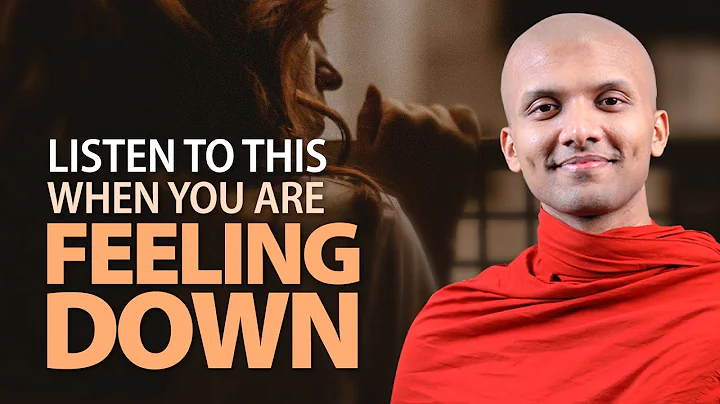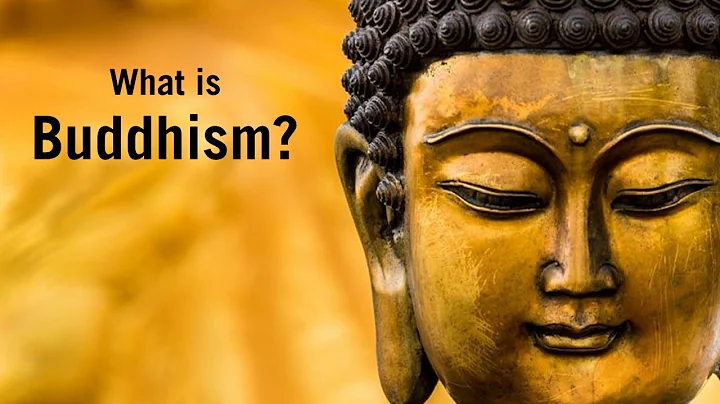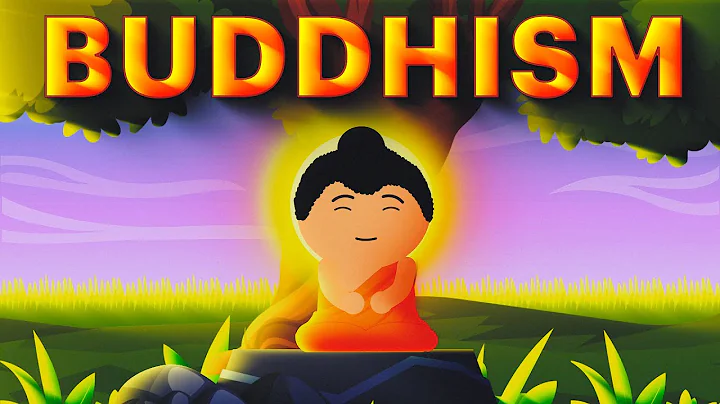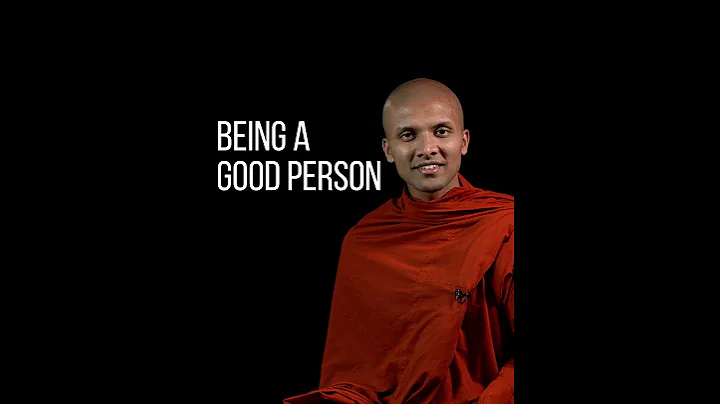Many Buddhists don’t pay much attention to the physical body after they have reached a certain level of practice. It’s not that they don’t rely on the physical body to survive, but they have a kind of contempt or even disgust for the existence of the physical body. They pay more attention to spiritual cultivation, to understand their minds and see their nature, and to live with the world forever.

Buddhism has the story of Mahasattva sacrificing his life to feed the tiger, and Thousand Hands and Thousand Eyes Guanyin The legend of the Bodhisattva's predecessor, the Three Emperors Gushe, used his hands and eyes to cure his father. It seems to promote a kind of Buddhism that sacrifices his life. The transcendent state of forgetting death is actually a bit bloody.
Buddhists do not rush to see a doctor after getting sick. Instead, they regard getting sick as a way to eliminate karma and allow the body to endure a certain amount of pain so that the soul can become clear.
However, there is no scientific explanation for the karma that Buddhists talk about, and no one can prove it. It is just a theory. Buddhists must reach a certain state through certain practices, and even reach a state that transcends the body and reaches the soul.
Perhaps, the reason why Buddhists do not pay attention to the body comes from the Buddha's ascetic practice. Sakyamuni once went to the mountains to practice hard for several years, but made little progress. He felt that this was not going to work, so he walked out of the mountains. Due to malnutrition, he fainted while walking by the river. A woman was carrying a can of milk to her husband who was working in the fields. She happened to see him fainting and fed him a can of milk.
Sakyamuni became very energetic after drinking a can of milk. He wanted to sit under the Bodhi tree and vowed that he would not get up from this seat if he did not obtain supreme enlightenment.
So, after a few days and nights, he saw the morning star and became enlightened.
Things all appear relatively. If he hadn’t had the foundation of several years of hard training and the mental recovery after drinking milk, maybe he wouldn’t have vowed to become enlightened. Therefore, Buddhists in later generations must practice hard and exercise their bodies to a certain extent. After fatigue, their spirits will gain a certain degree of freedom.
They have to work in the fields, walk long distances, and meditate at night to penetrate the Zen pass and gain the supreme enlightenment of knowing their mind and nature.
However, many Zen masters have practiced Zen for many years, but they do not know how to understand their minds and nature, and instead they damage their legs. They have to sit cross-legged and meditate for several hours, and then move their lower limbs, but they cannot fully move them. Practicing for a long time will cause problems in the lower limbs. Some practice meditation and their legs are disabled, while others practice meditation and their spines are damaged. Of course, most Buddhists want their bodies to be in a state of fatigue and dormancy before they can mobilize their spirits.

During the process of mobilization, they only focused on the spiritual experience, but ignored the physical feelings, so that they were not aware of problems with the physical body.
They believe that the body has a lifespan, and even compared to the spirit, the lifespan of the body is very short. If you can reach the point of knowing your mind, you can control the soul's home and achieve true freedom. After all, the soul is what lasts forever.
It is not yet known whether the soul exists, but the body does exist, or in other words, the body exists in this three-dimensional space of length, width and height and needs to be taken care of. If the body is not good, how can the soul be stable?
Buddhists seem to want to transcend the body and let the soul exist alone. If were not schizophrenic, would seem to be talking about a transcendent experience, and few people can obtain this experience.
Taoism is different. It pays attention to the cultivation of inner elixirs and attaches great importance to the longevity of the human body. However, they seem to have gone to the other extreme, that is, to collect yin and replenish yang, and to engage in various types of Zhoutian, and convinced qi and bigu , which are technical operations. Compared with Buddhism's clear mind and nature, Taoism's technical operations become opportunistic rather than true practice. However, Taoism is not optimistic about Buddhist practice, thinking that the practice of abandoning the body is a kind of narcissism, or even a kind of obsession.
So, what is the relationship between the body and the spirit? Can it be split into two as the Buddhists describe it?
may not necessarily be separated. The relationship between the body and the spirit is like the relationship between skin and hair. "If the skin does not exist, how will the hair be attached?" Without the body, will the spirit still exist independently? Just like what Taoism says, "Yin cannot be born without yang, and yang cannot grow without yang." The body and the spirit are the opposites of yang and yin, and one is indispensable.
The transcendent experiences that Buddhists obtain after abandoning their physical senses are generally the reaction after the brain releases a kind of anesthetic , which is similar to the hallucinations before death.
However, the Buddha said, "There are no eyes, ears, nose, tongue, body, or mind; no color, sound, fragrance, taste, touch, or dharmas; no vision, or even the realm of unconsciousness. There is no ignorance, no end of ignorance, no ignorance. There is no end of old age and death, no accumulation of suffering, no wisdom and no gains. "If you deny everything outside your body and let go of all the senses of the body, you will enter the spiritual realm and you will not even know anything. . Gain the experience of supreme wisdom and nirvana in the realm of knowing nothing. The physical sensation becomes an obstacle in the process of practice and must be let go.
As a result, Buddhists began to pay attention to spiritual cultivation. As for the physical body, it was only used to eliminate karma, but it would not ascend in a day like Taoism.

Perhaps, Buddhists have a tendency to self-abuse in their practice, using self-abuse in exchange for inner peace. In fact, sleeping can also achieve this effect after your mind is clear of worries. Why should we insist on sitting in meditation?
It is a common problem for Buddhists to stop paying attention to the physical body after practicing to a certain level, and instead focus on the spiritual world. However, no one has said it wrong, and those who say it wrong are misunderstood by Buddhists as low-level cultivation, or not enlightened. . In fact, it is obvious and self-evident who is a low-level practitioner and who is an unenlightened person.

















![[English] Who Am I - Lecture 1 - Ven. Guan Cheng - DayDayNews](https://i.ytimg.com/vi/KU0fUs2It5o/hq720.jpg?sqp=-oaymwEcCNAFEJQDSFXyq4qpAw4IARUAAIhCGAFwAcABBg==&rs=AOn4CLDFpQUN_QwRfC7bmP4sUadq-RcYdg)
![A Moving Masterpiece 清明上河图 [English narration] - DayDayNews](https://i.ytimg.com/vi/kxff-4GktOI/hqdefault.jpg?sqp=-oaymwEcCOADEI4CSFXyq4qpAw4IARUAAIhCGAFwAcABBg==&rs=AOn4CLBtHGLeUpJNCYDJYnZTuISQ1N5Vag)


